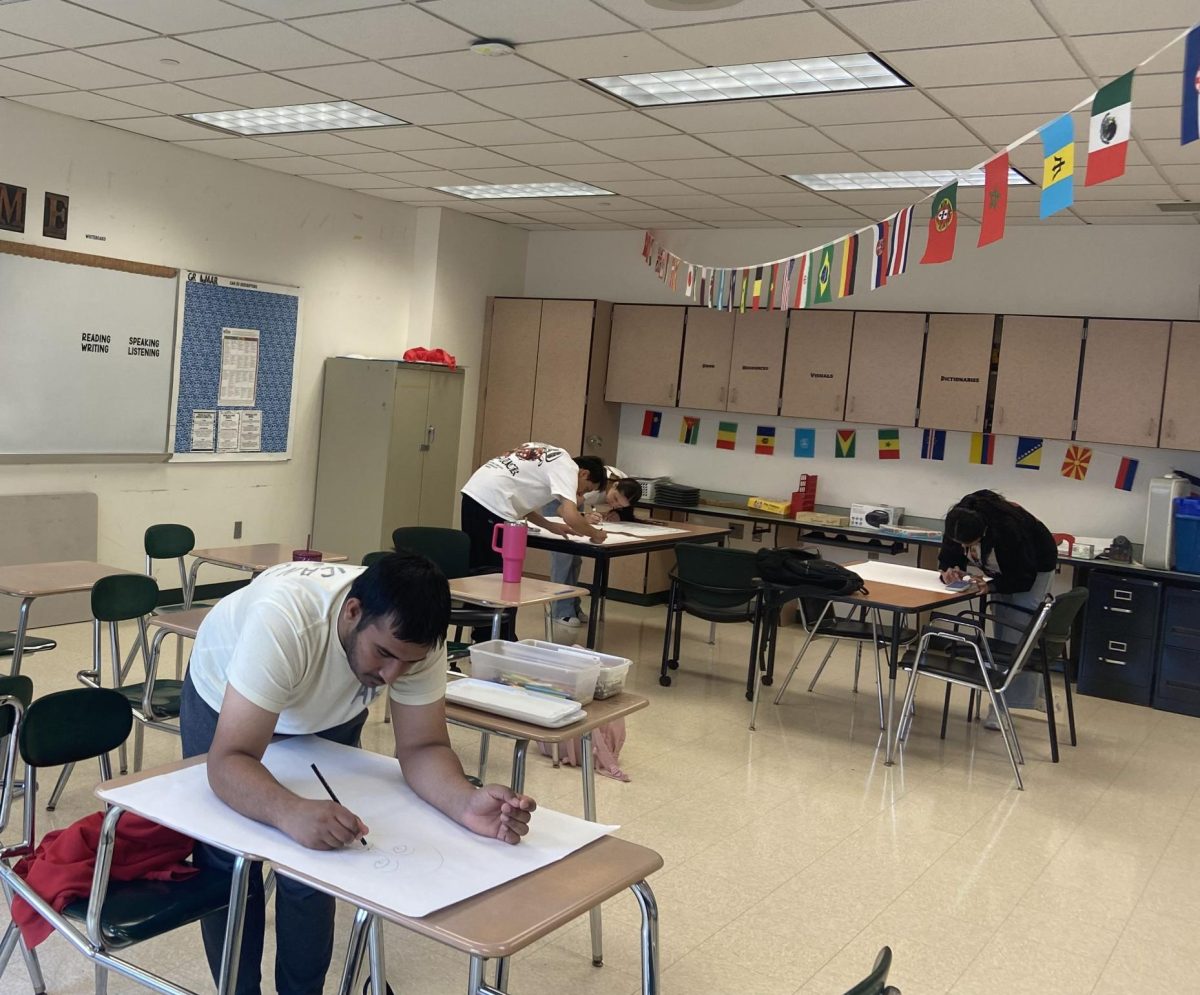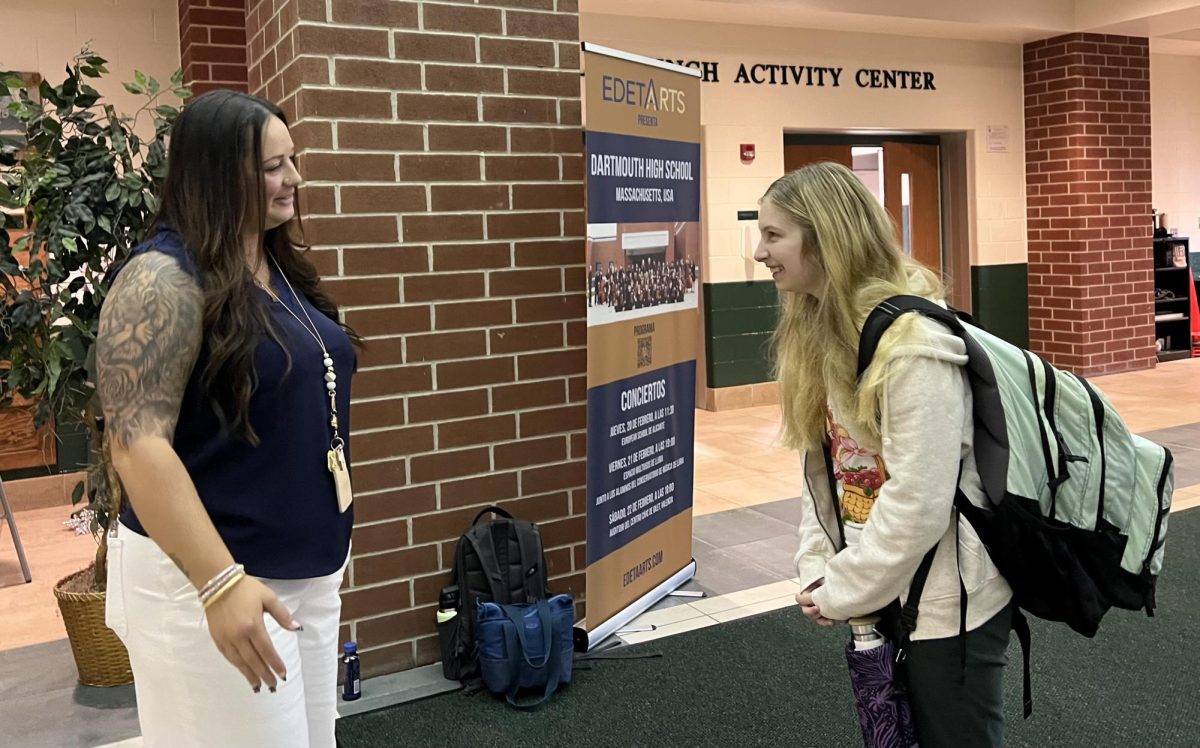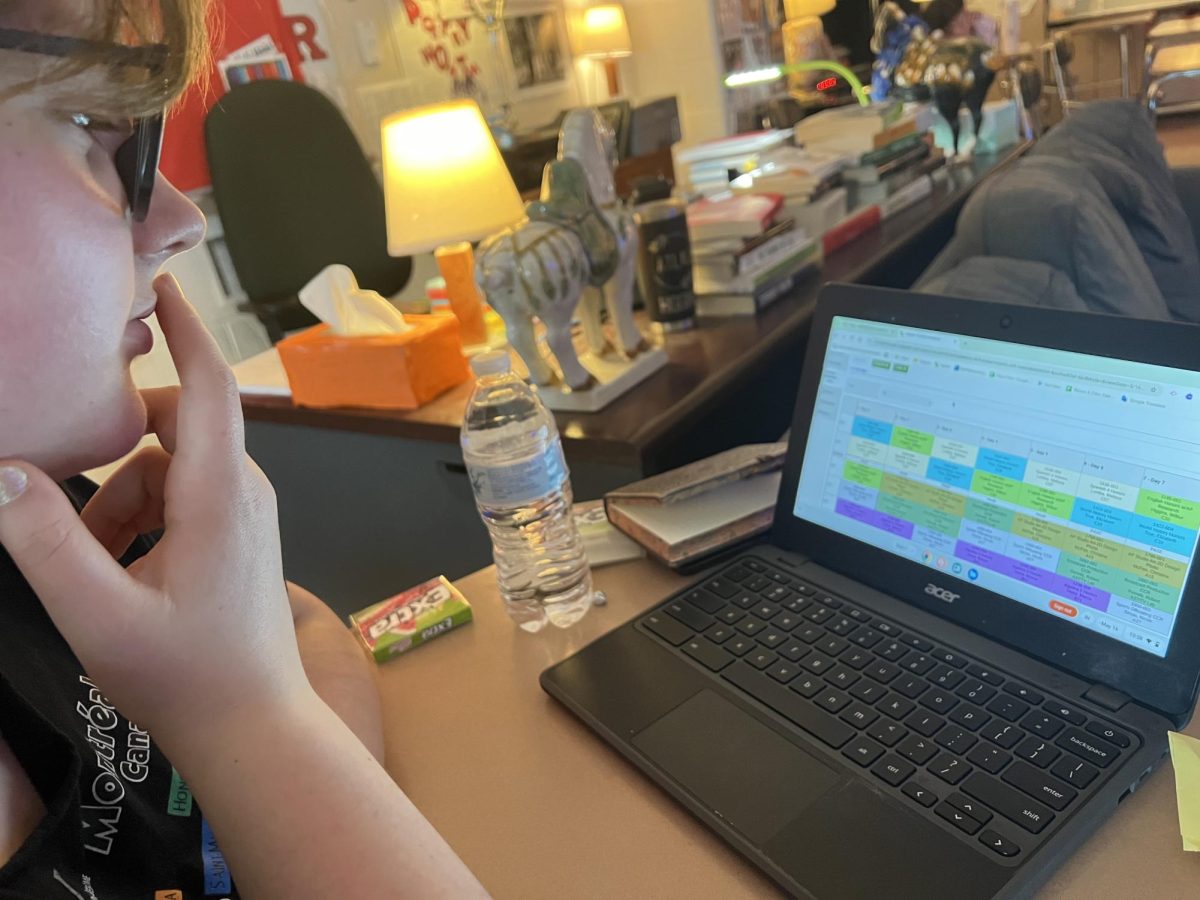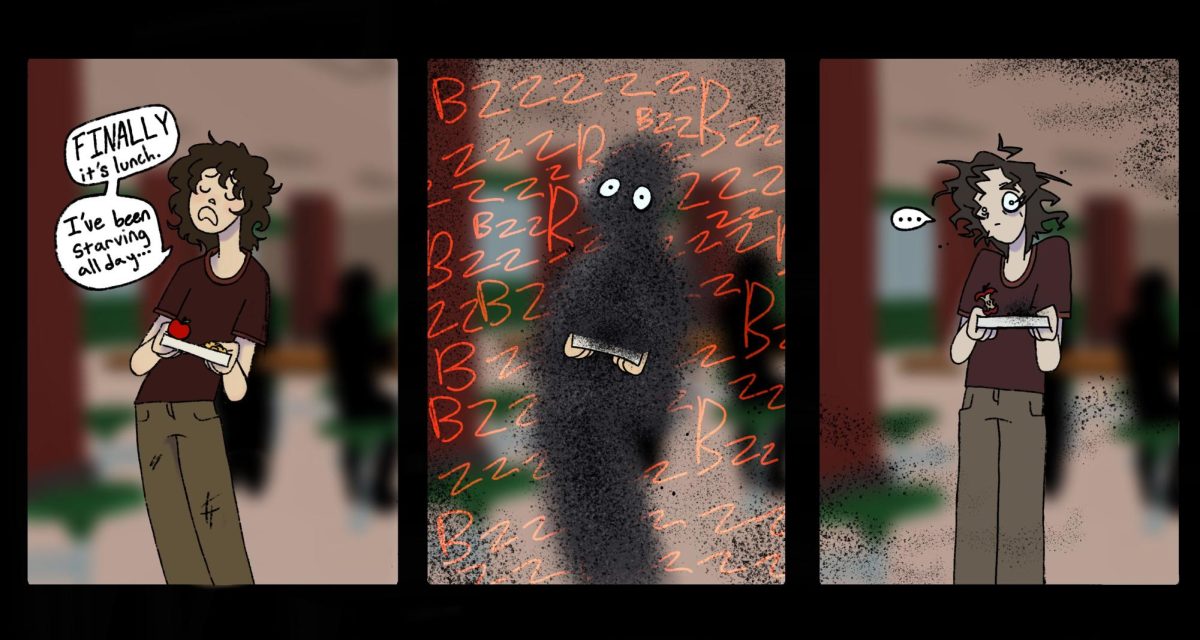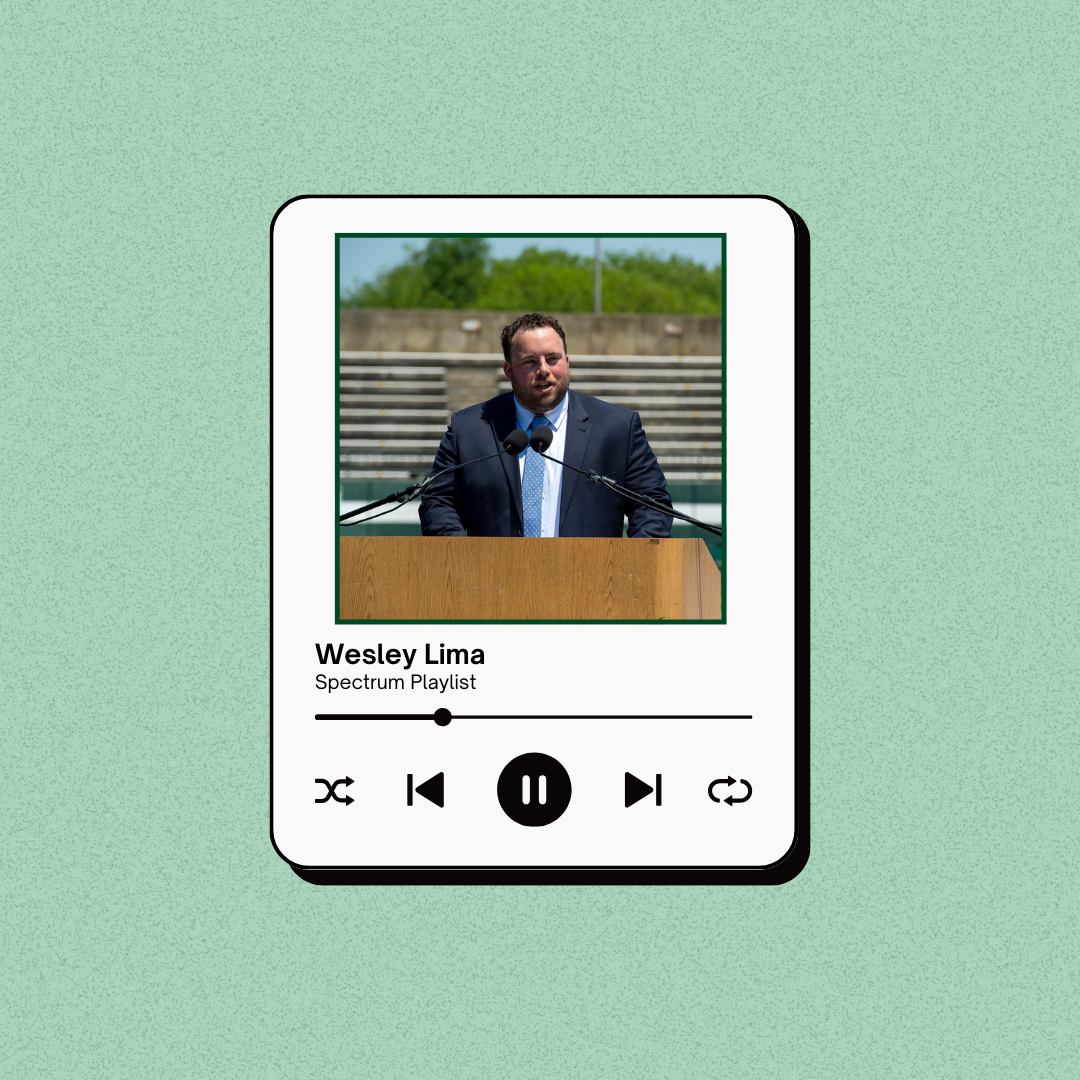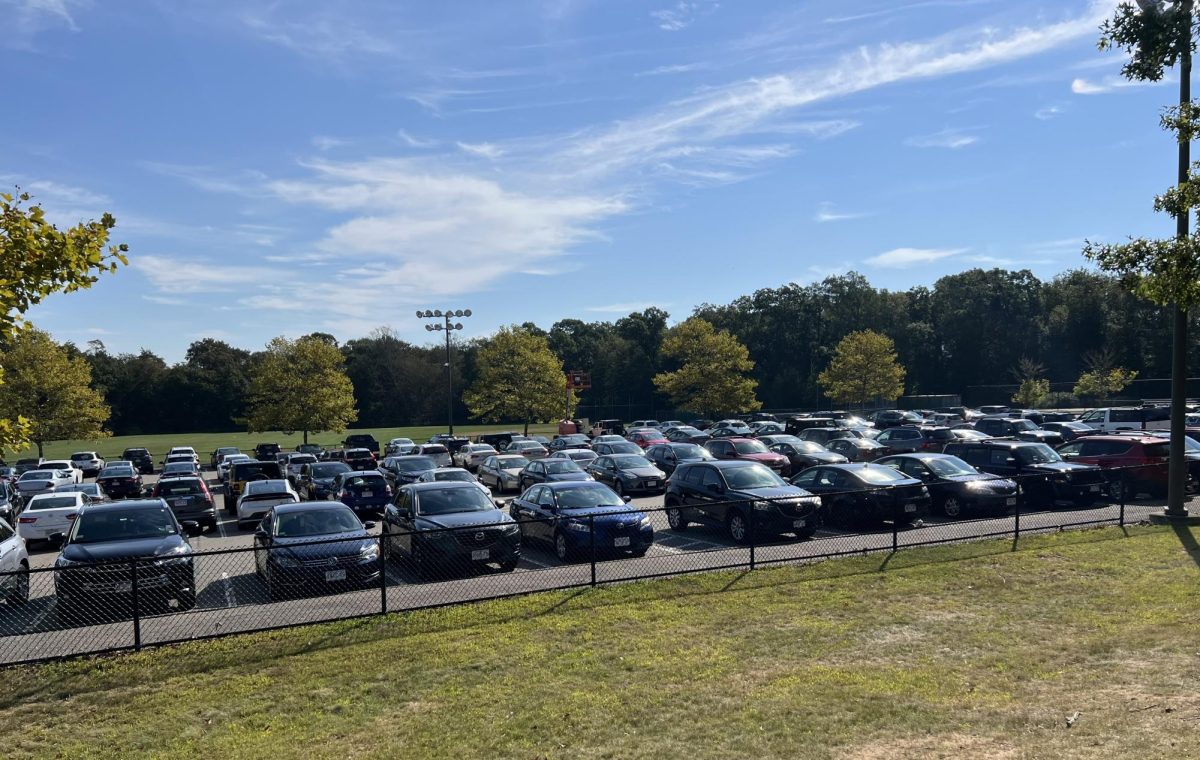English is one of the most spoken languages in the world, but as English natives, we often forget about those who do not. While the East Coast of the US has a linguistically diverse population, Dartmouth is especially English-speaking.
In Massachusetts, all public schools are required to have an English Language Learners Program (ELL) that assists students in grades K-12 with language acquisition. There are about 12 ELL students between Dartmouth Middle and High School. As important as this program is, not many Dartmouth students are aware of it.
Madison Correia understood that and wanted to bring this program to the attention of Dartmouth students. Correira graduated from DHS in 2019. In November of 2024, she joined the DHS staff as an English Language Learner teacher. Correia spends her mornings working with language learners at DMS and arrives at the high school in the afternoon.
42 states, as well as the District of Columbia, are a part of the WIDA Consortium. This group creates and sets standards for both English language learners and Spanish language learners. Massachusetts is a part of WIDA and uses its standards to screen and test English and Spanish language learners.
Students get placed in the ELL program at enrollment. When enrolling their child, parents are asked to fill out a home language survey that indicates what languages their student speaks and any languages they hear outside of school. If another language is spoken or heard at home more than sometimes, students then take the ACCESS Screener which scores their reading, writing, speaking, and listening proficiencies in English. The score corresponds to the WIDA Proficiency Levels 1 – 6. One means novice, while six means native speaker. If a student receives below a 4 on the screening, they are placed in the ELL program and must take the ACCESS test, which is different from the screening.
ACCESS testing is the state standardized testing for ELL language proficiency that is taken every year. It has four sections: reading, listening, speaking, and writing, which feels very familiar to language tests at DHS, except it is four hours long. The scores are used to determine how much the student is able to fully participate in classes instructed in English or if they still need language support. This test, which is taken in January or February, is required by Massachusetts state law and is administered by WIDA.
Correia collaborates with the World Language Department to gather resources that support the WIDA Consortium standards. ELL teachers must be creative and flexible to meet the diverse needs of students. No one size fits all for this type of learning, especially in classrooms where students don’t share a common language. While this is no easy feat, it is a very important one.
When taking a foreign language class, immersion is very important. Learning grammar concepts can be boring, especially when the students are not using the language they’re learning everyday. ELL teachers try to incorporate games, like Guess Who or UNO, and real world scenarios, such as ordering at a restaurant, to engage the students while also practicing their language skills.
These activities can be fun and relaxing for students, as well as provide them with a breath of fresh air. Correia explained that it can be exhausting for an English language learner to be around exclusively English speakers all day. Imagine the 60 minutes spent in your Portuguese or Spanish class, constantly translating the vocabulary into English. Now imagine doing that for six hours a day, in all of your classes, and all of the people around you speaking in a foreign language with rules that are difficult to understand.
“Our ELLs didn’t understand the Holocaust survivor presentation or the stay in place order,” Correia said, explaining how deeply language barriers affect ELL students. “It’s so hard to learn a language, from morning announcements to knowing what’s for lunch.”
These challenges extend beyond school walls. ELL students have to navigate places like the doctor’s office or grocery store, surrounded by people who don’t speak their language. Correia encourages people to have empathy for those who are working hard to learn a new language and culture everyday.

